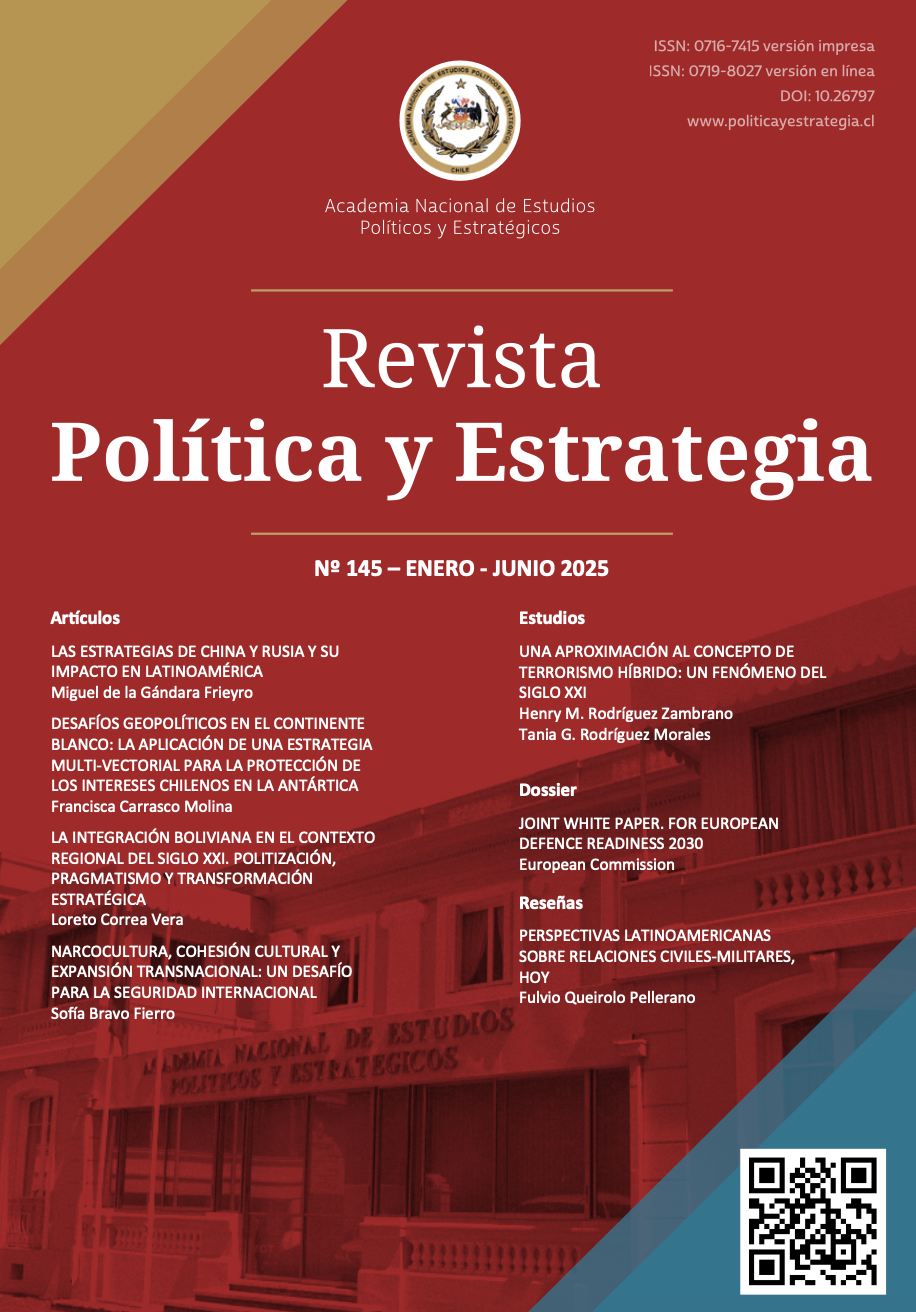Geopolitical challenges on the White continent
Main Article Content
Abstract
Antarctica is characterized by being a continent of international cooperation, peace and scientific research. With an area of 14 million square meters, the white continent has a vast number of natural resources, including the largest reserve of fresh water in the world, large deposits of natural gas and oil, making it a geostrategic area of international interest. In this sense, the Antarctic Treaty emerged in the twentieth century as a rare political victory amid international tensions due to the Cold War period, thus stopping a struggle for the sovereignty of the area's natural resources, opting for the path of cooperation between countries for the sake of scientific research and peace. And, although Antarctica has been spared from being the center of an armed conflict thanks to this treaty, it is not exactly because of its strategic irrelevance. Moreover, as we approach the end of the Antarctic Treaty in 2048, challenges such as the climate emergency, population growth and the scarcity of resources suggest that geostrategic competition for these resources will be reactivated, causing more influential states on the international stage to seek to position themselves to have a strategic advantage in the territory, which forces us as a country to strengthen our presence as original claimants of Antarctic sovereignty, opting for the prevalence of diplomacy with these states. This article postulates the implementation of multivector diplomacy as a mechanism for deterrence and protection of Chilean interests in the Antarctic territory.
Article Details
Downloads

This work is licensed under a Creative Commons Attribution 4.0 International License.
The authors keep the copyright of their works, in the other hand, the journal Politica y Estrategia is distributed under a Creative Commons Attribution 4.0 International license